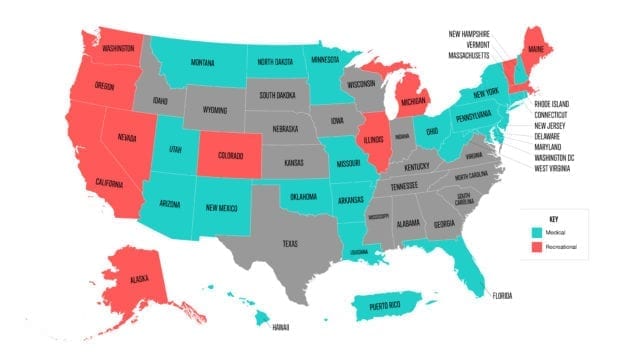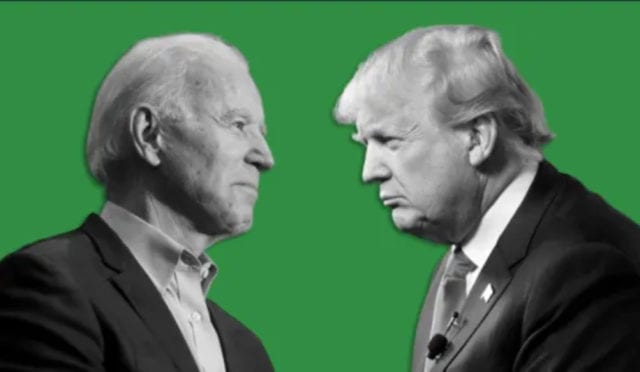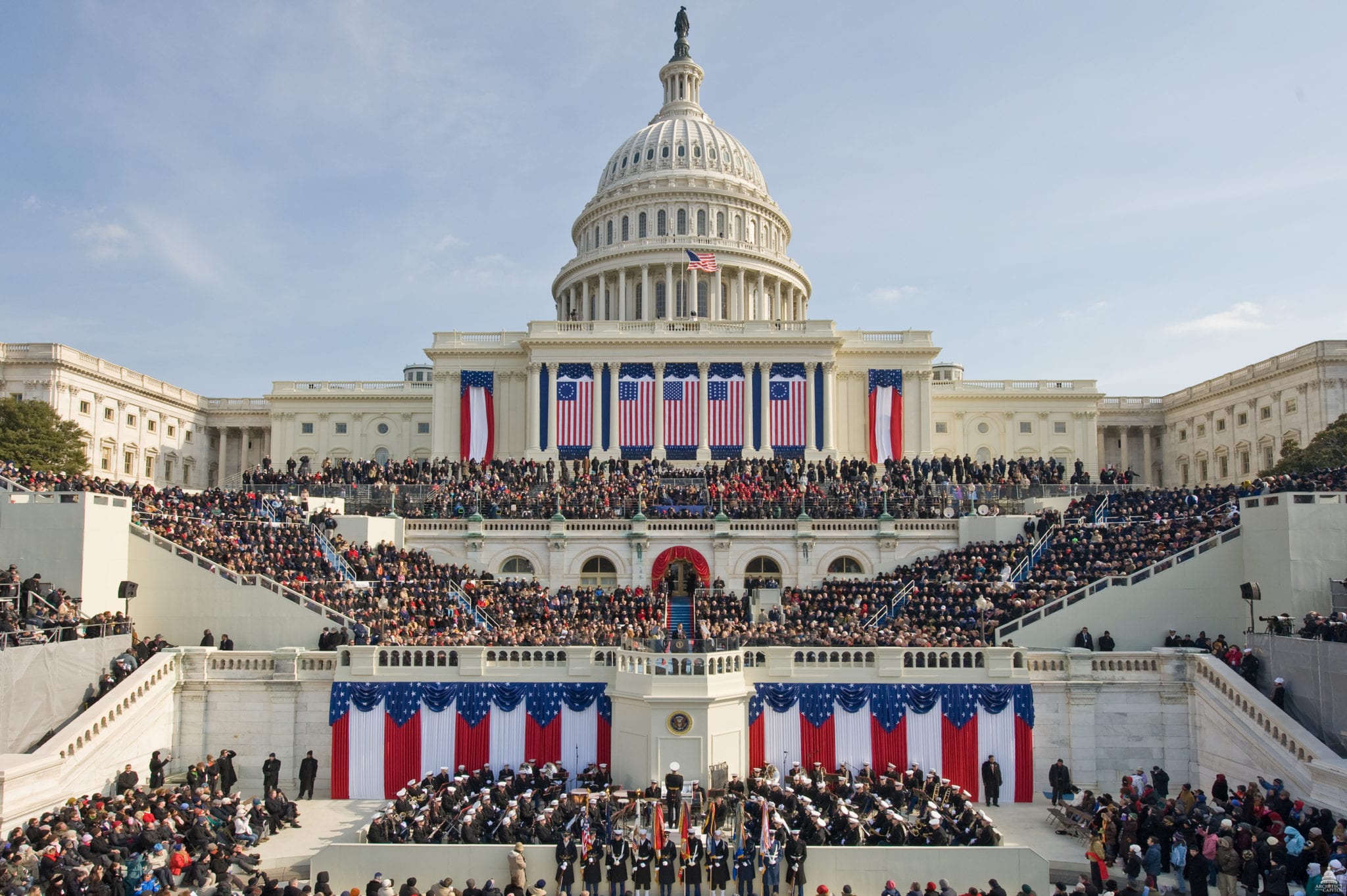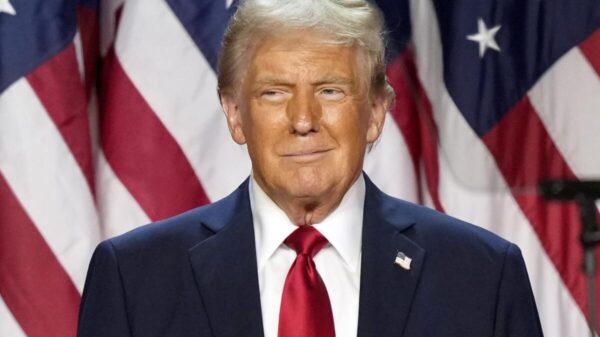With U.S. federal lawmakers likely to pass a “historic” cannabis legalization bill later this month, the stage is set for major reform after the November election, a policy expert says.
Last week, a leaked email revealed that the U.S. House of Representatives will vote on a wide-ranging bill called the MORE Act sometime after Congress resumes Sept. 14. Politico was the first to report the pending vote, which has since made international headlines and generated excitement within the cannabis community.
The Marijuana Opportunity Reinvestment and Expungement Act would decriminalize cannabis by officially removing it from the federal Controlled Substances Act. That would give states federal permission to pass their own laws on weed, which has been legalized by 11 state governments and by Washington D.C.
The bill would also expunge federal weed convictions, and set up a fund for communities hit hardest by the war on drugs.
“It’s certainly historic,” said Chris Lindsey, director of government relations with the Marijuana Policy Project. “Having the House vote on what’s in effect a legalization bill would certainly be a big moment in the timeline and the history of this movement.”
HUGE NEWS: The House will soon vote on our legislation to legalize marijuana and end the failed policy of prohibition that has resulted in a long and shameful period of selective enforcement against people of color, especially Black men.https://t.co/DNCoK5DW3L
— Earl Blumenauer (@repblumenauer) August 28, 2020
Lindsey says the MPP applauds key provisions within the bill, in particular how de-scheduling cannabis would finally address the historic harm that’s been imposed on people of colour in America.
“The war on cannabis really was conceived within a racist context, and has regularly been used as a weapon against people of colour,” he tells Mugglehead in a phone interview.
The bill would impose a 5 per cent tax on cannabis products with revenues being transferred to a fund set up to help those worst affected by the enforcement of prohibition.
Lindsey predicts the MORE Act will pass in the House, but run into significant challenges in the Republican-led Senate due to Majority Leader Mitch McConnell’s opposition to legalization.
“But that shouldn’t in any way take away from the fact that this is a big moment for an important bill on a topic that a lot of people support,” he adds.
Last year, Pew Research Center and Gallup polls showed that about two-thirds of Americans support legalizing weed — even a majority of Republicans are in favour of reform.

Black Lives Matter protests have swept across the U.S., including this May 30 demonstration in Washington DC., since the police killing of George Floyd in Minneapolis, Minnesota on May 25. Marijuana Policy Project’s Chris Lindsey says police reform won’t come in the U.S. until cannabis prohibition laws end. Photo by Rosa Pineda via Wikimedia Commons
A coalition of major civil rights organizations sent a letter to Democratic congressional leaders last month calling for a vote to end prohibition amid nationwide protests on police killings of Black Americans.
“In the face of the evolving Covid-19 pandemic and a growing national dialogue on unjust law enforcement practices, marijuana reform as a modest first step at chipping away at the war on drugs is more relevant and more pressing than ever before,” the group wrote. “The MORE Act remains the most effective and equitable way forward.”
For Lindsey and the MPP, Americans won’t see serious police and criminal justice reforms until federal prohibition ends.
“You cannot deny it. If you look simply at the arrest rates and nothing else, let alone the many, many personal stories that have been told and emerge and continue to emerge how prohibition laws target minorities of colour,” he said.
According to an American Civil Liberties Union report earlier this year, Black people are 3.64 time more likely to be arrested for possession than white people, despite similar rates of use. On average, 600,000 Americans get arrested each year with pot-related charges.
Read more: ACLU highlights persisting racist cannabis enforcement in 4/20 report
With or without MORE, legalization expands
Lindsey says the MORE Act would protect Americans by lifting restrictions on cannabis research, as well as pave the way for health and safety regulations for legal products.
It would also open the door for smaller, yet important cannabis bills — such as the STATES Act and the SAFE Banking Act — to get passed in Congress, he said.
The SAFE Act would protect banks and allow them to service weed businesses without being punished by federal regulators. Lindsey, who helped set up provisions in Illinois for social equity applicants, says the bill would improve minorities chances to participate and succeed in the industry.
If the STATES Act became law, the federal government wouldn’t be able to put road blocks in the way of state cannabis laws.

Currently 11 US states and Washington D.C. have legalized recreational cannabis and 33 states have legal medical weed programs. Photo via Weedmaps
There are currently four states — New Jersey, Arizona, Montana and South Dakota — that have approved recreational cannabis ballots in the November election. Mississippi and Nebraska have approved medical cannabis ballots.
“It’s actually possible that if all of them pass, and we think they very likely will, it will actually tie how many adult-use laws passed in 2016,” Lindsey said.
Legalizing cannabis is important more than ever, Lindsey explains, because it’s seen as windfall to states and cities that have seen their tax revenue plummet during the pandemic.
For instance, Colorado — which has seen record sales in 2020 — has already collected more than US$200 million in tax revenue this year alone.
Lindsey explains that MPP’s ultimate goal is to see federal legalization in the U.S., but the organization’s long term strategy is to continue to operate in states and change local laws as a way of pressuring D.C. lawmakers.
Read more: Pandemic will boost US cannabis legalization, but not until 2021, expert says
Reform chances increase if Senate swings blue
While the House vote on the MORE Act has generated significant buzz, Lindsey says the bill is not likely to pass both chambers of Congress unless the Senate swings blue this fall. Sen. Kamala Harris, the Democratic nominee for vice president, is the lead sponsor of the Upper Chamber’s version of the bill.
Meanwhile, President Donald Trump has openly opposed changing federal weed laws. Earlier this month, he also suggested that if Republicans wanted to win elections, they should avoid cannabis legalization ballots.
But even if Democrat frontrunner Joe Biden wins the White House, Lindsey says, it won’t necessarily bolster the bill’s prospects of passing.
In June, the Biden campaign unveiled a wide-ranging policy document, which proposed rescheduling cannabis on a federal basis, legalizing medical weed nationally and leaving it up to states to decide about recreational use.
The recommendations were penned by Biden’s “unity task forces” that his campaign created in April in partnership with former Democrat primary rival Sen. Bernie Sanders.
Read more: Biden’s new cannabis plan draws ire of advocates
Read more: Biden and Trump must end US cannabis prohibition: NORML petition

In July, reform advocates at NORML called out Joe Biden and Donald Trump for failing to provide a viable strategy to end federal weed prohibition or to facilitate the growing, state-sanctioned retail industry. Press photo
A Biden administration wouldn’t likely support the MORE Act, according to Lindsey, which means a Democrat-controlled House and Senate would need a super-majority with two-thirds in support to override a presidential veto.
And because party members are often reluctant to force their leader to do something they wouldn’t want to, that could create another stumbling block for the bill.
Lindsey thinks it’s more likely that the bill at the very least spurs on serious engagement between the parties on what a good system will look like. However, he’s reluctant to offer any predictions of a date when weed becomes federally legal in the U.S.
“I would not want to place any bets right now — I think it’s a little early,” he says. “You don’t want to count those chickens.”
Politico reports that the House will likely vote on the MORE Act the week of Sept. 21.
Top image of the Inauguration of President Barack H. Obama, 44th president of the United States by Architect of the Capitol via US Capitol Flickr
jared@mugglehead.com
@JaredGnam














